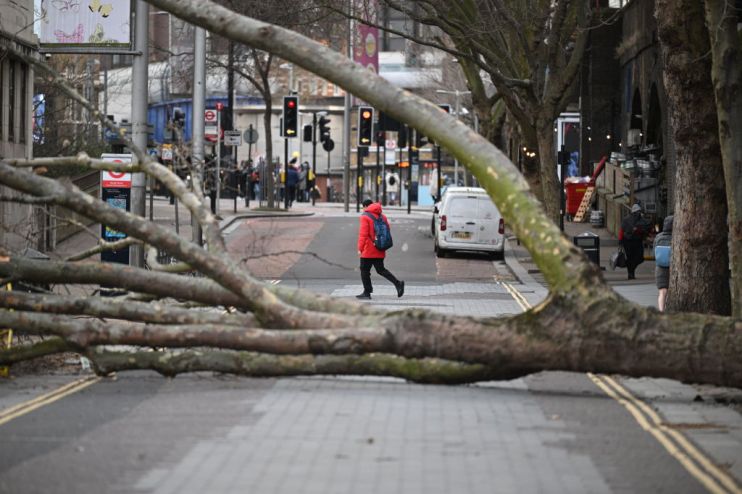Thousands of Brits received ‘unacceptable service’ after Storm Arwen, Ofgem rules

Electricity networks provided an “unacceptable service” to thousands of customers following Storm Arwen, which left nearly one million homes without power, industry watchdog Ofgem has said.
Winds of 100mph caused widespread disruption, uprooted trees and damaged power lines, cutting the electricity supply from November 26 across northern England and Scotland.
Power outages lasted for more than 10 days in some areas and customers complained of poor communication from their suppliers about when they would be reconnected.
Ofgem has carried out an independent review of the industry, focusing on whether the power outages could have been prevented, if correct and timely information was given to customers affected, whether power was restored quickly enough, and how customers were supported after the storm, including compensation payments.
If found staff at distribution network operators (DNOs) worked hard in challenging conditions, but concluded that thousands of customers were provided with an “unacceptable service”.
Ofgem chief executive Jonathan Brearley said: “Distribution network companies faced challenging conditions in the aftermath of Storm Arwen, and I pay tribute to the many colleagues in those companies who supported customers and worked to get them back on power as quickly as possible.
“However, it was unacceptable that nearly 4,000 homes in parts of England and Scotland were off power for over a week, often without accurate information as to when power would be restored.
“Network companies need to do better, not just to prevent power disruptions, but to ensure that, when power is off, they work smarter to get people back on power quicker, and keep customers informed with accurate and timely information. This is the very least customers should be able to expect.
“The frequency of extreme weather events is only set to increase so it is really important that industry, and those involved more widely, learn from Storm Arwen to better respond in future.”Show less